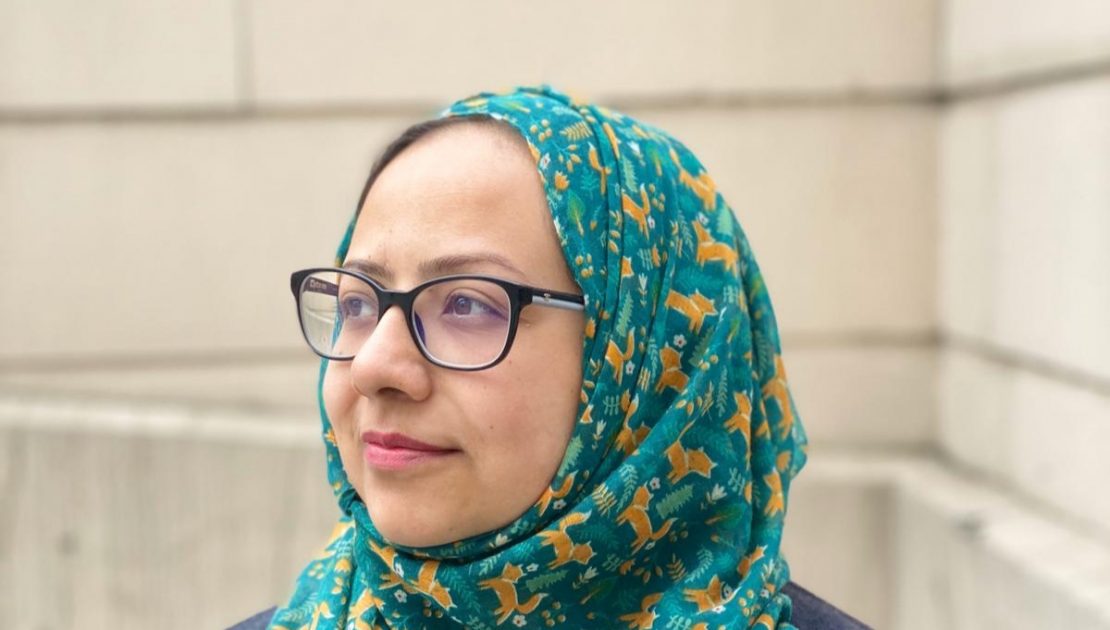8 months
Country:

Meet – Masarat Daud – Account Director at Global Office Consulting.
8 months
Country:
London, United Kingdom
Area of Interest in International Development:
Gender, education, human rights.
Organisations/Affiliations:
TED, TEDx, DHP Foundation.
Background – Tell us a little about yourself:
I grew up in Dubai and moved to London in 2010. My family is from Rajasthan and I am the quintessential middle child. I graduated with a Bachelors in IT from the American University in Dubai and a MSc in Media in Development from SOAS, University of London.
I am big on sarcasm and humour and immediately connect with people based on what we are able to laugh at together. I gave a TED talk on the ‘Muslim Heroine’s Journey’ – let’s talk about that when I see any of you next. But for now, what it means is that I am exhausted at conversations and with people who treat me like an ‘exotic Muslim animal’. I am finding great solace in friendships where I don’t have to explain to people that I love something because I just do, and not because there must be a deeper, 500-year-old ancient religious or cultural story behind it.
What issues do you consider to be most prevalent to women globally?
I think that most key issues cut across as women’s issues and rights in its own unique way. A gender lens on any problem impacts the outcome in a very different way. But across the key problems, what I think sits invisibly is the coloniser mindset. How do you expect a coloniser mindset of power and privilege make true change that sees women as humans, with their own complex cultures and value systems?
If you could do anything to create impact on gender issues, what would be the first thing you would do?
I share my work and social life with so many people, especially the ones for whom getting an education was a given. I remember during my university days, I would constantly hear relatives – near and far – ask me why I needed to go to a university, what’s the point of it, that my father should not pay so much for me to get a degree. I still remember a male cousin casually tell me at a family dinner that it was useless for me to get a degree, when I should just get married and take care of the home.
So, for me, education is a very personal struggle. I have campaigned in the region my small town falls in (in Rajasthan, India), towards girls’ education. It has also taught me to also see men as victims of patriarchy and social shortcomings. So, from mentorship to giving scholarships – I do both. And my father has given extensively towards building education infrastructure in our small town, particularly focused on girls’ education. The campaigning work over the last decade has been incredible. Nobody asks me anymore ‘why should girls get an education’. When I am in the villages/small town now, I am surrounded by girls and women who tell me they are eager to study, to make sure their daughters get an education.
What are some of the biggest barriers to progress in gender, justice, and global health?
There are barriers of investment, access, bureaucracy and the like. But what I find toughest is what I call, the ‘soft bullshit’. The difficult of changing mindsets, the invisible, yet deeply entrenched negative beliefs and norms – especially towards women. They have the power to make one feel hopeless despite having financial backing to create projects.
What do you think are some of the solutions to these problems?
Abandon the coloniser mindset and work within the community; when you truly care for the people you are solving for, it is a great starting point.
Tell us something about you that we don’t know?
Two things:
My husband and I curated a dinner every year, where we invited people we have engaged with on Twitter to come to our house and eat with us during the Muslim month of Ramadan. Of course, we haven’t done this in two years because of the pandemic.
Second:
I talk more often about cake than I consume it.
What three items would you take to a desert island and why?
With food hopefully being sorted before anyone packs me off to an island, I would take: a phone (with connectivity and solar charging – has music, books, photos in one), notebooks, and pens.
Song that always gets you dancing?
Not dancing per se, but I love Coke Studio Pakistan tracks – all seasons. Songs for all moods.
What is the best thing about working at GOC?
To work with great people is always the best aspect of any workplace. The scope to build and grow a business, and also an opportunity to help my team learn, grow, and progress.
Where are you going to be in ten year’s time?
My life has been an unpredictable mosaic in many ways. What I might be able to predict is that I want to be surrounded by my family, friends, good food, meaningful work, and to have finally written that book I’ve been sitting on for years.